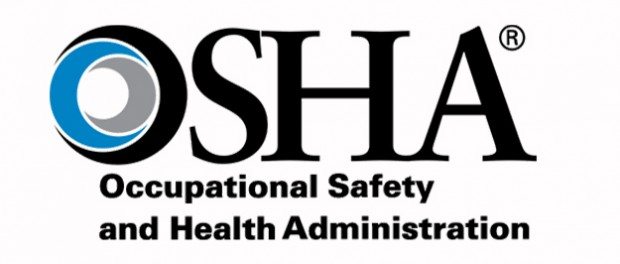
Enforcements by the U.S. Occupational Safety & Health Administration (OSHA) have dropped off sharply this year, a further sign that the Trump Administration’s attacks on worker safeguards continues unabated.
OSHA Tasked with Ensuring Safe and Healthy Worksites
OSHA is the federal agency tasked with ensuring safe and healthy conditions at plants, refineries, and other workplaces throughout the United States. Any business with one or more employees must comply with its standards.
To ensure compliance, OSHA regulations allow for regular inspections of worksites by agency personnel. OSHA inspectors are also deployed when workers are injured or killed on the job.
Values – known as “Enforcement Units” (EUs) – are assigned to every specific inspection or investigation OSHA conducts each year.
OSHA Has Already Recorded 1,100+ Fewer Enforcement Units in 2018
According to a brief recently issued by the National Employment Law Project (NELP), OSHA data from the first 5 months of 2018 show that the agency has already recorded 1,163 fewer EUs compared to 2017.
OSHA EUs also dropped in 2017 compared to 2016, from 42,900 to 41,829.
Reduced OSHA Enforcements Track with Drop in Inspectors
According to the brief, the reduction in OSHA enforcements coincides with a drop in the number of agency inspectors.
As of January 2018, OSHA had 764 inspectors, down from 814 the prior year.
“This has clearly led to serious cutbacks in enforcement activity that raises vital questions about OSHA’s ability to protect workers,” the NELP said.
Trump Administration Targets Regulations Intended to Prevent Deadly Plant, Refinery, and Pipeline Explosions
Unfortunately, President Trump’s regulatory attacks don’t stop at OSHA.
Since taking office, the Administration has targeted numerous other regulations intended to protect workers’ lives and prevent deadly plant, refinery, and pipeline explosions.
For example, the U.S. Department of Transportation has eliminated or weakened more than a dozen safety regulations, including those put in place to safeguard the nation’s 2.4 million-mile pipeline network from spills, explosions, and other accidents.
The U.S. Environmental Protection Agency (EPA) has eliminated or severely weakened parts of the proposed Chemical Disaster Rule, which was drafted in the wake of a catastrophic fertilizer plant explosion that virtually destroyed the town of West, Texas and killed more than a dozen people in 2013.
The Administration has also abandoned the combustible dust rule, which was proposed in response to the 2008 Imperial Sugar explosion near Savannah, Georgia that killed 13 workers and injured more than 3 dozen others.
Also on the chopping block, vital offshore drilling regulations that were put in place following the 2010 Deepwater Horizon offshore oil rig explosion.
And finally, while the Trump Administration has been unsuccessful in its attempts to eliminate the U.S. Chemical Safety Board, that agency has experienced staff reductions since the President took office, hindering its ability to investigate major chemical disasters at plants and refineries throughout the United States.
Our Firm Has Won Over $1 Billion for Injured Workers and Their Families. Contact Our Undefeated Plant Explosion Lawyers for a Free Consultation by Calling 1-888-603-3636 or Click here.
Having recovered more than $1 Billion on behalf of workers throughout Texas, Louisiana, and across the United States who were injured or tragically killed in connection with every major plant, refinery, and pipeline explosion in recent history, our Undefeated Plant Explosion Lawyers have the knowledge and resources needed to ensure that our clients and their families obtain full compensation for all of their injuries and losses.
If you have questions about your legal rights and options following a workplace accident or explosion, call 1-888-603-3636 or Click Here to send us a confidential email through our “Contact Form.”
All questions and consultations are free, and because we only represent clients on a contingency-fee basis, you’ll pay nothing unless we win your case.